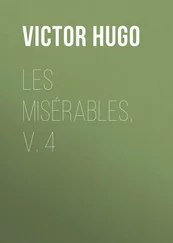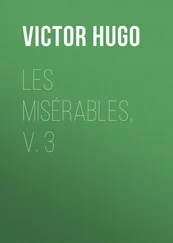Lascelles Wraxall - Les Misérables, v. 1
Здесь есть возможность читать онлайн «Lascelles Wraxall - Les Misérables, v. 1» — ознакомительный отрывок электронной книги совершенно бесплатно, а после прочтения отрывка купить полную версию. В некоторых случаях можно слушать аудио, скачать через торрент в формате fb2 и присутствует краткое содержание. Жанр: literature_19, foreign_antique, foreign_prose, на английском языке. Описание произведения, (предисловие) а так же отзывы посетителей доступны на портале библиотеки ЛибКат.
- Название:Les Misérables, v. 1
- Автор:
- Жанр:
- Год:неизвестен
- ISBN:нет данных
- Рейтинг книги:4 / 5. Голосов: 1
-
Избранное:Добавить в избранное
- Отзывы:
-
Ваша оценка:
- 80
- 1
- 2
- 3
- 4
- 5
Les Misérables, v. 1: краткое содержание, описание и аннотация
Предлагаем к чтению аннотацию, описание, краткое содержание или предисловие (зависит от того, что написал сам автор книги «Les Misérables, v. 1»). Если вы не нашли необходимую информацию о книге — напишите в комментариях, мы постараемся отыскать её.
Les Misérables, v. 1 — читать онлайн ознакомительный отрывок
Ниже представлен текст книги, разбитый по страницам. Система сохранения места последней прочитанной страницы, позволяет с удобством читать онлайн бесплатно книгу «Les Misérables, v. 1», без необходимости каждый раз заново искать на чём Вы остановились. Поставьте закладку, и сможете в любой момент перейти на страницу, на которой закончили чтение.
Интервал:
Закладка:
"Man has upon him the flesh which is at once his burden and his temptation. He carries it with him and yields to it. He must watch, restrain, and repress it, and only obey it in the last extremity. In this obedience there may still be a fault: but the fault thus committed is venial. It is a fall, but a fall on the knees, which may end in prayer. To be a saint is the exception, to be a just man is the rule. Err, fail, sin, but be just. The least possible amount of sin is the law of man: no sin at all is the dream of angels. All that is earthly is subjected to sin, for sin is a gravitation."
When he saw everybody cry out and grow indignant, all of a sudden, he would say with a smile, "Oh! oh, it seems as if this is a great crime which all the world is committing. Look at the startled hypocrites, hastening to protest and place themselves under cover."
He was indulgent to the women and the poor on whom the weight of human society presses. He would say, "The faults of women, children, servants, the weak, the indigent, and the ignorant are the fault of husbands, fathers, masters, the strong, the rich, and the learned." He also said, "Teach the ignorant as much as you possibly can: society is culpable for not giving instruction gratis, and is responsible for the night it produces. This soul is full of darkness, and sin is committed, but the guilty person is not the man who commits the sin, but he who produces the darkness."
As we see, he had a strange manner, peculiarly his own, of judging things. I suspect that he obtained it from the Gospels. He one day heard in a drawing-room the story of a trial which was shortly to take place. A wretched man, through love of a woman and a child he had by her, having exhausted his resources, coined false money, which at that period was an offence punished by death. The woman was arrested while issuing the first false piece manufactured by the man. She was detained, but there was no proof against her. She alone could accuse her lover and ruin him by confessing. She denied. They pressed her, but she adhered to her denial. Upon this, the attorney for the crown had an idea: he feigned infidelity on the lover's part, and contrived, by cleverly presenting the woman with fragments of letters, to persuade her that she had a rival, and that the man was deceiving her. Then, exasperated by jealousy, she denounced her lover, confessed everything, proved everything. The man was ruined, and would shortly be tried with his accomplice at Aix. The story was told, and everybody was delighted at the magistrate's cleverness. By bringing jealousy into play he brought out the truth through passion, and obtained justice through revenge. The Bishop listened to all this in silence, and when it was ended he asked: "Where will this man and woman be tried?" "At the assizes." Then he continued, "And where will the attorney for the crown be tried?"
A tragical event occurred at D – . A man was condemned to death for murder. He was a wretched fellow, not exactly educated, not exactly ignorant, who had been a mountebank at fairs and a public writer. The trial attracted the attention of the towns-people. On the eve of the day fixed for the execution the prison chaplain was taken ill, and a priest was wanted to assist the sufferer in his last moments. The Curé was sent for, and it seems that he refused, saying, "It is no business of mine, I have nothing to do with the mountebank, I am ill too, and besides, that is not my place." This answer was carried to the Bishop, who said, "The Curé is right, it is not his place, it is mine." He went straight to the prison, entered the mountebank's cell, called him by name, took his hand, and spoke to him. He spent the whole day with him, forgetting sleep and food while praying to God for the soul of the condemned man. He told him the best truths, which are the most simple. He was father, brother, friend – bishop only to bless. He taught him everything, while reassuring and consoling him. This man was about to die in desperation: death was to him like an abyss, and he shuddered as he stood on its gloomy brink. He was not ignorant enough to be completely indifferent, and his condemnation, which was a profound shock, had here and there broken through that partition which separates us from the mystery of things, and which we call life. He peered incessantly out of this world through these crevices, and only saw darkness; but the Bishop showed him a light.
On the morrow, when they came to fetch the condemned man, the Bishop was with him. He followed him, and showed himself to the mob in his purple cassock, and with the episcopal cross round his neck, side by side with this rope-bound wretch. He entered the cart with him, he mounted the scaffold with him. The sufferer, so gloomy and crushed on the previous day, was radiant; he felt that his soul was reconciled, and he hoped for heaven. The Bishop embraced him, and at the moment when the knife was about to fall, said: "The man whom his fellow-men kill, God resuscitates. He whom his brothers expel finds the Father again. Pray, believe, enter into life! The Father is there!" When he descended from the scaffold there was something in his glance which made the people open a path for him; it was impossible to say whether his pallor or his serenity were the more admirable. On returning to the humble abode, which he called smilingly his palace, he said to his sister: "I have just been officiating pontifically."
As the most sublime things are often those least understood, there were persons in the town who said, in commenting on the Bishop's conduct, "It is affectation." This, however, was only the talk of drawing-rooms; the people who do not regard holy actions with suspicion were affected, and admired. As for the Bishop, the sight of the guillotine was a shock to him, and it was long ere he recovered from it.
The scaffold, in fact, when it stands erect before you, has something about it that hallucinates. We may feel a certain amount of indifference about the punishment of death, not express an opinion, and say yes or no, so long as we have never seen a guillotine; but when we have come across one the shock is violent, and we must decide either for or against. Some admire it, like De Maistre, others execrate it, like Beccaria. The guillotine is the concretion of the law, it calls itself vindicta ; it is not neutral, and does not allow you to remain neutral. The person who perceives it shudders with the most mysterious of shudders. All the social questions raise their notes of interrogation round this cutter. The scaffold is a vision, it is not carpenter's work, it is not a machine, it is not a lifeless mechanism made of wood, steel, and ropes. It seems to be a species of being possessing a gloomy intuition; you might say that the wood-work lives, that the machine hears, that the mechanism understands, that the wood, the steel, and the ropes, have a volition. In the frightful reverie into which its presence casts the mind the scaffold appears terrible, and mixed up with what it does. The scaffold is the accomplice of the executioner; it devours, it eats flesh and drinks blood. The scaffold is a species of monster, manufactured by the judge and the carpenter, a spectre that seems to live a sort of horrible life made up of all the death it has produced. Hence the impression was terrible and deep; on the day after the execution, and for many days beyond, the Bishop appeared crushed. The almost violent serenity of the mournful moment had departed; the phantom of social justice haunted him. He who usually returned from all his duties with such radiant satisfaction seemed to be reproaching himself. At times he soliloquized, and stammered unconnected sentences in a low voice. Here is one which his sister overheard and treasured up: "I did not believe that it was so monstrous. It is wrong to absorb oneself in the divine law so greatly as no longer to perceive the human law. Death belongs to God alone. By what right do men touch that unknown thing?"
Читать дальшеИнтервал:
Закладка:
Похожие книги на «Les Misérables, v. 1»
Представляем Вашему вниманию похожие книги на «Les Misérables, v. 1» списком для выбора. Мы отобрали схожую по названию и смыслу литературу в надежде предоставить читателям больше вариантов отыскать новые, интересные, ещё непрочитанные произведения.
Обсуждение, отзывы о книге «Les Misérables, v. 1» и просто собственные мнения читателей. Оставьте ваши комментарии, напишите, что Вы думаете о произведении, его смысле или главных героях. Укажите что конкретно понравилось, а что нет, и почему Вы так считаете.












